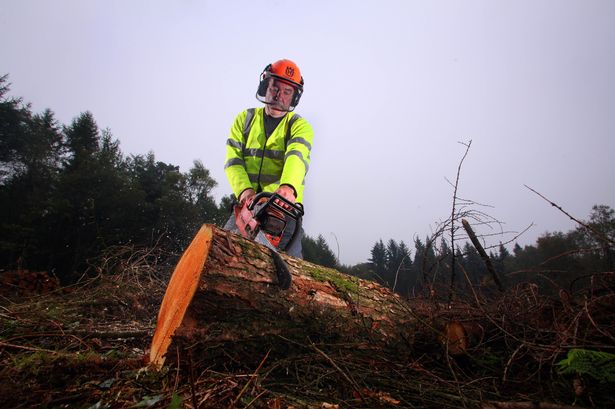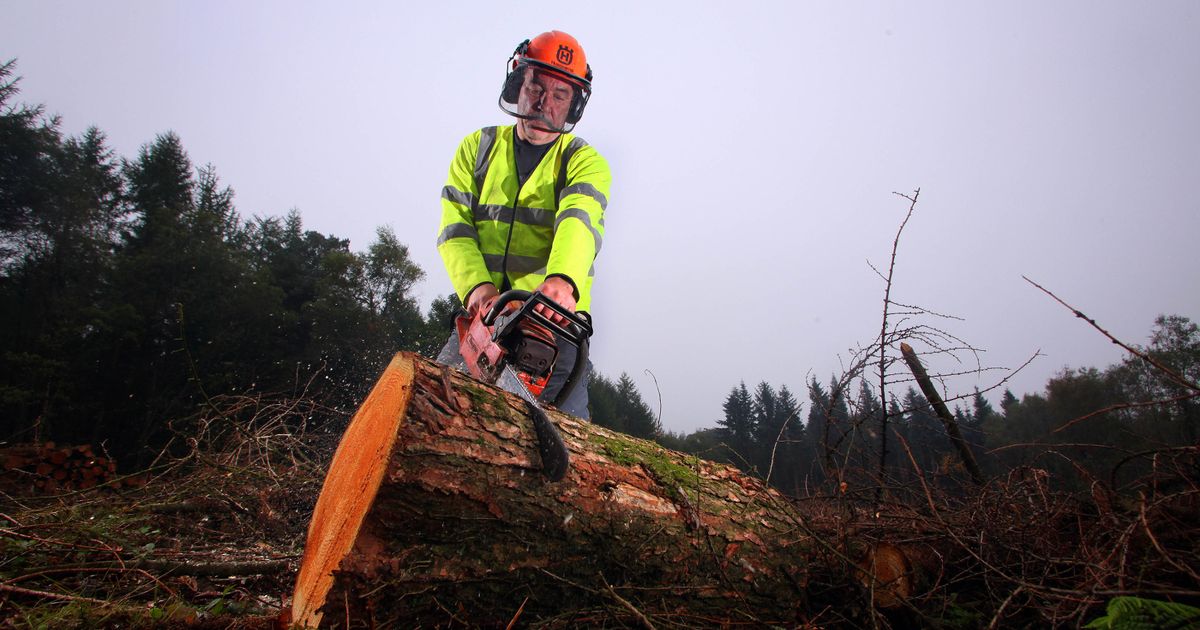Up to 4,000 trees will be felled in Bristol File image of trees being felled(Image: PA)
File image of trees being felled(Image: PA)
Thousands of trees in Bristol are set to be felled and replaced under a £2.83 million council programme aimed at addressing the impact of Ash Dieback.
Bristol City Council ’s Public Health and Communities Committee will consider the approval of a comprehensive Highway and Landscapes Tree Planting Programme on Friday, May 9.
The proposal seeks to enhance tree canopy coverage across streets and open spaces while responding to the growing threat posed by the Ash Dieback disease, which is already affecting up to 10,000 trees in the city.
Between 3,000 and 4,000 council-owned trees are believed to need urgent felling or safety work due to the fungal infection, which compromises tree structure and poses a risk to public safety.
The disease, first identified in the UK in 2012, has spread widely, with studies showing mortality rates of up to 85% in plantations across Europe.
The new plan will commit £933,000 in revenue to fund safety-related tree works and £1.9 million in capital to plant replacement trees and improve public landscapes.
The council’s overarching goal is to increase citywide tree canopy coverage to 20% by 2040, in line with its One City Trees and Woodland Strategy.
Richard Fletcher, head of parks and green spaces, outlined that new tree planting will be prioritised in heat-stressed and deprived areas and coordinated with other highway improvement projects.
He said the scheme would be developed through feasibility assessments considering environmental impact, public access, and the suitability of each site for planting.
The plan also includes a new £2.7 million framework contract to ensure tree works can be delivered, addressing concerns over the existing contractor’s limited capacity due to a national shortage of skilled arborists.
The proposal also includes a future review in autumn 2026 to assess the need for ongoing funding beyond the current three-year commitment.
The tree planting will build on existing initiatives, including the One Tree Per Child and Trees for Streets programmes, and will include engagement with ward councillors and communities to ensure transparency.
